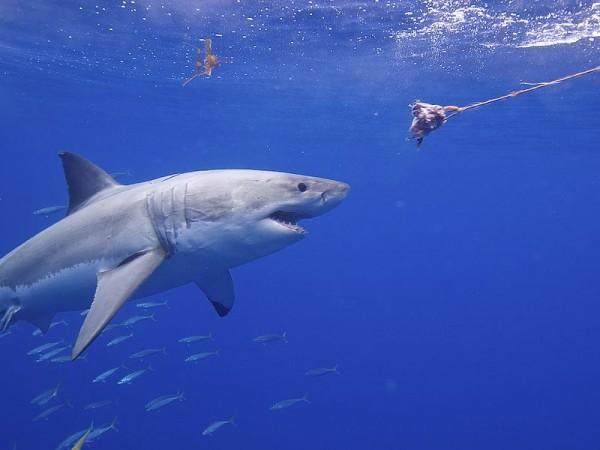
It might seem like a chilling plot from a movie but it actually is true and happened recently at the Cape Cod beach in Massachusetts, United States. A 61-year-old man escaped the jaw of death, quite literally, when a great white shark attacked him while swimming across the coast of Cape Cod. The man, however, managed to defeat the predator with his bare hands.
According to William Lytton, the survivor, he felt an agonizing pain in his leg while swimming in the water that was eight to ten feet deep. Instead of giving up to the pain, Lytton fought for his life and punched the shark. Lytton later said to media that he was targeting the shark's gills. Although it wasn't very methodical, it did work. The shark left his leg and then the man swam back to land.
Later, Lytton had to go through a series of six life-saving surgeries at the Tufts Medical Center. Surgeons operated on the 61-year-old man and removed the shark teeth fragments from his leg. The chief of orthopedic trauma surgery Dr. Scott Ryan was literally in shock. Boston News reported that the doctor stated that he has never seen such a shark bite injury in his life.
"He is certainly lucky to be alive," Dr. Ryan said. He also added that William Lytton's "quick thinking" practically saved his leg.
The bone of Lytton's leg suffered puncture wounds. The teeth missed the major blood vessels and nerves by just a few milliliters and the surgery took three hours to stitch him up. Now the doctors are expecting that he will make an almost full recovery.
"The pain was really excruciating. I remember the helicopter landing and then nothing for the next two days," Lytton had told AP earlier.
Now the researchers are trying to find out why the shark encounters are increasing across this area. According to AP, a state marine biologist Greg Skomal stated that his team has been able to spot a total of 149 great white sharks off the coast of Cape Cod in July. Skomal is leading a five-year-long study on the sharks, which is ending this year.
According to the researcher, younger sharks could be the primary ones responsible for these encounters. Climate change and global warming could also have added to this condition.
According to officials, they had to close the beaches more frequently than ever because of the sharks. Although local authorities are taking steps to educate the commoners, they fear that not many of them are paying attention to the warnings.

















